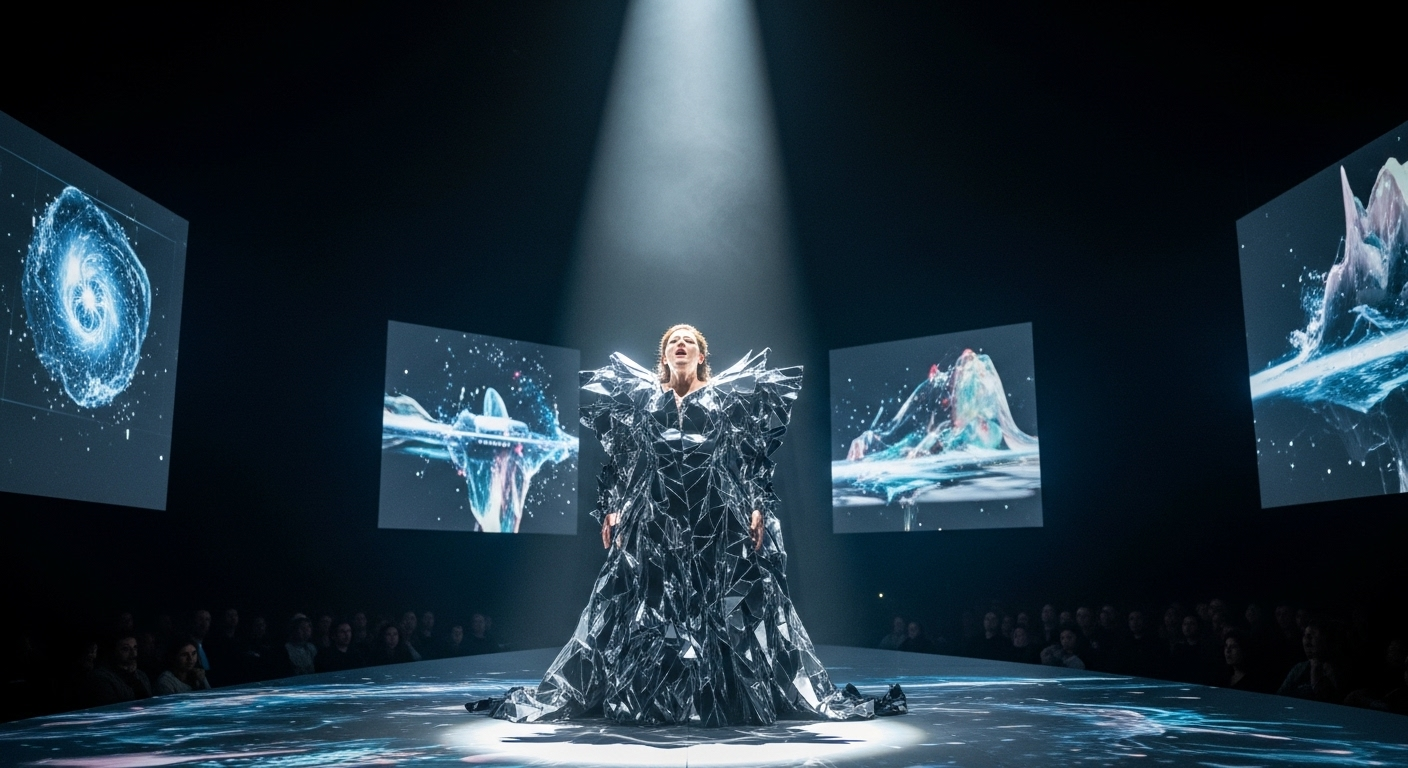Avant-Garde Opera: Redefining the Boundaries of Performance
In the ever-evolving landscape of performing arts, a new movement is quietly revolutionizing the world of opera. Avant-garde opera, a daring fusion of traditional operatic elements with experimental techniques, is challenging conventional notions of what opera can be. This innovative approach is attracting a diverse audience, breathing new life into a centuries-old art form, and pushing the boundaries of musical and theatrical expression in ways that are both thrilling and controversial.

Breaking Traditional Boundaries
Modern avant-garde opera productions often eschew linear narratives in favor of fragmented, abstract storytelling. Composers and directors collaborate to create immersive experiences that blur the lines between music, theater, and visual art. These productions may incorporate elements of electronic music, spoken word, dance, and multimedia installations, creating a multisensory experience that defies easy categorization.
Technology and Innovation
One of the most exciting aspects of avant-garde opera is its embrace of cutting-edge technology. Some productions utilize virtual reality to transport audiences to fantastical realms, while others employ AI-generated music and lyrics to create ever-evolving performances. Motion capture technology allows singers to control digital avatars in real-time, opening up new possibilities for character representation and stage design.
Challenging the Audience
Avant-garde opera demands active engagement from its audience, often blurring the line between performer and spectator. Some productions encourage audience participation, while others deliberately provoke discomfort or confusion as a means of sparking introspection and debate. This approach can be polarizing, with critics arguing that it alienates traditional opera-goers while proponents claim it attracts a younger, more diverse audience.
The Global Influence of Avant-Garde Opera
While avant-garde opera remains a niche within the broader opera world, its influence is being felt globally. Major opera houses are increasingly programming experimental works alongside traditional repertoire, recognizing the need to evolve and attract new audiences. Festivals dedicated to avant-garde opera have sprung up in cities around the world, providing platforms for emerging artists and fostering a sense of community among practitioners and enthusiasts.
Controversy and Criticism
Not everyone is embracing the avant-garde opera movement. Traditional opera lovers often decry what they see as a betrayal of the art form’s rich history and musical traditions. Critics argue that some avant-garde productions prioritize shock value over substance, sacrificing the emotional power of opera in pursuit of novelty. There are also concerns about accessibility, with some arguing that avant-garde opera is too esoteric for general audiences.
The Future of Opera
Despite the controversies, many see avant-garde opera as vital to the future of the art form. By pushing boundaries and embracing new technologies, these innovative productions are attracting younger audiences and keeping opera relevant in the 21st century. Some argue that this experimentation is necessary for the genre to survive and thrive in an increasingly competitive entertainment landscape.
Notable Avant-Garde Opera Productions
Several recent productions have garnered attention for their groundbreaking approaches. Michel van der Aa’s Eight combines live performance with virtual reality, allowing audience members to explore a 3D virtual world. Another notable work is The Instrument, a collaboration between composer Raven Chacon and librettist Du Yun, which incorporates indigenous storytelling traditions and experimental sound design.
The Role of Conservatories and Education
As avant-garde opera gains prominence, music conservatories and opera training programs are adapting their curricula to prepare students for this new landscape. Many institutions now offer courses in electronic music composition, multimedia performance, and interdisciplinary collaboration, recognizing that the opera singers and composers of tomorrow will need a diverse skill set to succeed in this evolving field.
Conclusion
Avant-garde opera represents a bold reimagining of one of the world’s oldest performing arts. By embracing experimentation, technology, and interdisciplinary collaboration, these innovative productions are challenging our perceptions of what opera can be. While the movement remains controversial, its impact on the broader opera world is undeniable. As avant-garde opera continues to evolve, it promises to shape the future of musical theater in exciting and unpredictable ways, ensuring that this centuries-old art form remains vibrant and relevant for generations to come.






